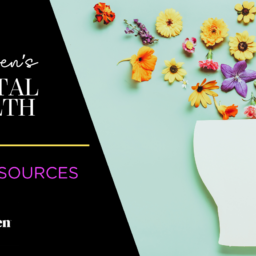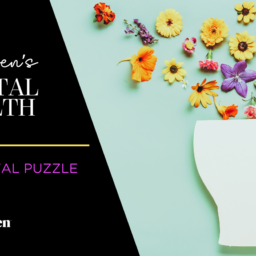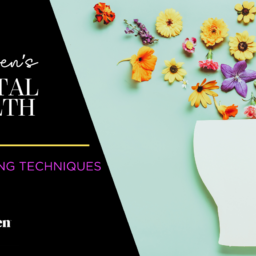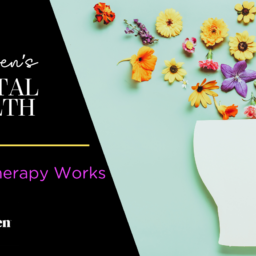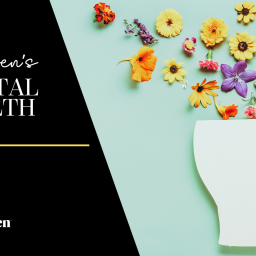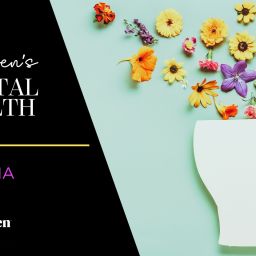
 Welcome to Indy Maven’s Mental Health column coming by way of Adair McDonald, LMHC (she/her/hers). Check out her website for information about how Adair works with clients, and to contact her directly to book a session.
Welcome to Indy Maven’s Mental Health column coming by way of Adair McDonald, LMHC (she/her/hers). Check out her website for information about how Adair works with clients, and to contact her directly to book a session.
 Four years ago, I heard about the concept of choosing one word for the New Year that would serve as a self-care checkpoint throughout the year. This idea appealed to me as someone who had felt ambivalent about traditional resolutions. I could still have hopes and goals for the New Year, but with less pressure to make big changes I was unlikely to stick with.
Four years ago, I heard about the concept of choosing one word for the New Year that would serve as a self-care checkpoint throughout the year. This idea appealed to me as someone who had felt ambivalent about traditional resolutions. I could still have hopes and goals for the New Year, but with less pressure to make big changes I was unlikely to stick with.
My words have been “Grounded,” “Embodied,” “Connected,” and “Present” so far. I’ve used these words in simple ways, such as reminding myself to bring more of this energy into whatever experience I’m having. I also found concrete tools to help me accomplish my big goals, such as attending various trainings, using breathing techniques, or getting more exercise. At the end of the year, I haven’t abandoned these words or the new habits they’ve inspired. Instead, I build on them by choosing a new word.
I’ve shared this idea with friends and clients, and people seem to respond to the compassionate nature of the exercise. Take the most common resolutions: losing weight or exercising more. We all know we “should” eat healthily and work out, but without self-compassion about how that will actually happen, we risk either engaging in toxic diet culture (which inevitably leads to feeling worse) or giving up entirely and feeling doomed to lifelong failure. However, if we choose a word like “Honor,” eating well or moving our bodies can feel more like honoring our needs rather than completing a task to avoid guilt. When we know our “why” and have ways to connect to it, we are more likely to accomplish our goals.
What do you want to cultivate in your life this year? To gain clarity, you might go for a walk and focus on this question or set a timer and free-write or journal on the subject. You might also look back through your calendar or photos from the past year for inspiration.
From there, choose a word that will support this. Don’t worry if something perfect doesn’t come to mind immediately—trying a few on until one feels right is okay. Or you might get lucky and have a word present itself that feels just right. If that happens, go with it.
Once you have your word, write it down or share it with others so that you have a point of reference throughout the year.
Next, consider your first action item to help you cultivate your intentions. This is where it can get tricky, and fears of failure or resistance to accountability might creep in. Remember, self-compassion isn’t just about feeling good in the short term—it’s also about using positive discipline, just like a good parent must. When you can have a kind inner dialogue with yourself about why you’re choosing to do something, being anchored to your word of the year can remind you that it’s about self-love and mental wellness, making the new or hard thing more manageable.
When setting goals, using the SMART goal formula can be helpful. SMART stands for Specific, Measurable, Achievable, Relevant, and Time-bound.
Let’s put this together with an example. Consider my pretend client, Meg. She has struggled this past year to feel good enough in most areas of her life. While she is in a partnership, she often feels hurt and disappointed by their communication. She has a job and financial security, but she worries it could all vanish if she doesn’t manage her stress. She is very busy throughout the day and can’t find energy or time for exercise. By the end of the day, she is hungry and tired, often picking up fast food on the way home from work. She may work a bit more at home, but even then, she can’t relax and ends up scrolling on her phone until she finally turns out the light and gets ready to do it all again the next day. People tell her she’s doing fine, but she knows she’s not living up to her potential and worries she never will.
 After journaling about this, Meg realizes the word she wants for 2025 is “Appreciate.” She wants to feel more appreciated by her partner, appreciate herself for working hard and providing financial security, and appreciate her mind and body by caring for them better. She also wants to appreciate the simple pleasures that add meaning to life and the little pockets of time outside work that she can use for self-care.
After journaling about this, Meg realizes the word she wants for 2025 is “Appreciate.” She wants to feel more appreciated by her partner, appreciate herself for working hard and providing financial security, and appreciate her mind and body by caring for them better. She also wants to appreciate the simple pleasures that add meaning to life and the little pockets of time outside work that she can use for self-care.
While many ideas come to mind, she decides to start by getting a therapist to help hold her accountable. To make the goal SMART, she is SPECIFIC that starting therapy will help. She makes it MEASURABLE by deciding to reach out to at least one therapist by the end of the week. She knows it’s ACHIEVABLE because she has found an online community for recommendations. It is RELEVANT due to her chronic feelings of “not-enoughness,” and she makes it TIME-BOUND by committing to booking her initial appointment within the next eight weeks. Meg feels more hopeful as she begins to imagine additional SMART goals to help her better care for herself.
How could this formula work for you? Are there emotional states that have become too prevalent in your life, such as anger, hopelessness, loneliness, anxiety, or fear of failure? If so, what word could help you gently make positive changes? Even if you’re reading this well into the New Year, it’s still a great time to choose a word. As I write this at the end of 2024, I’m inspired to journal and choose my own words, and I’m happy that 5 years later, it still feels helpful. We’re in this together, and our words will be with us all year too.
SUPPORT LOCAL JOURNALISM
All of our content—including this article—is entirely free. However, we’d love it if you would please consider supporting our journalism with an Indy Maven Membership.
P.S. Sign up for our weekly newsletter with stories like this delivered to your inbox every Thursday!













